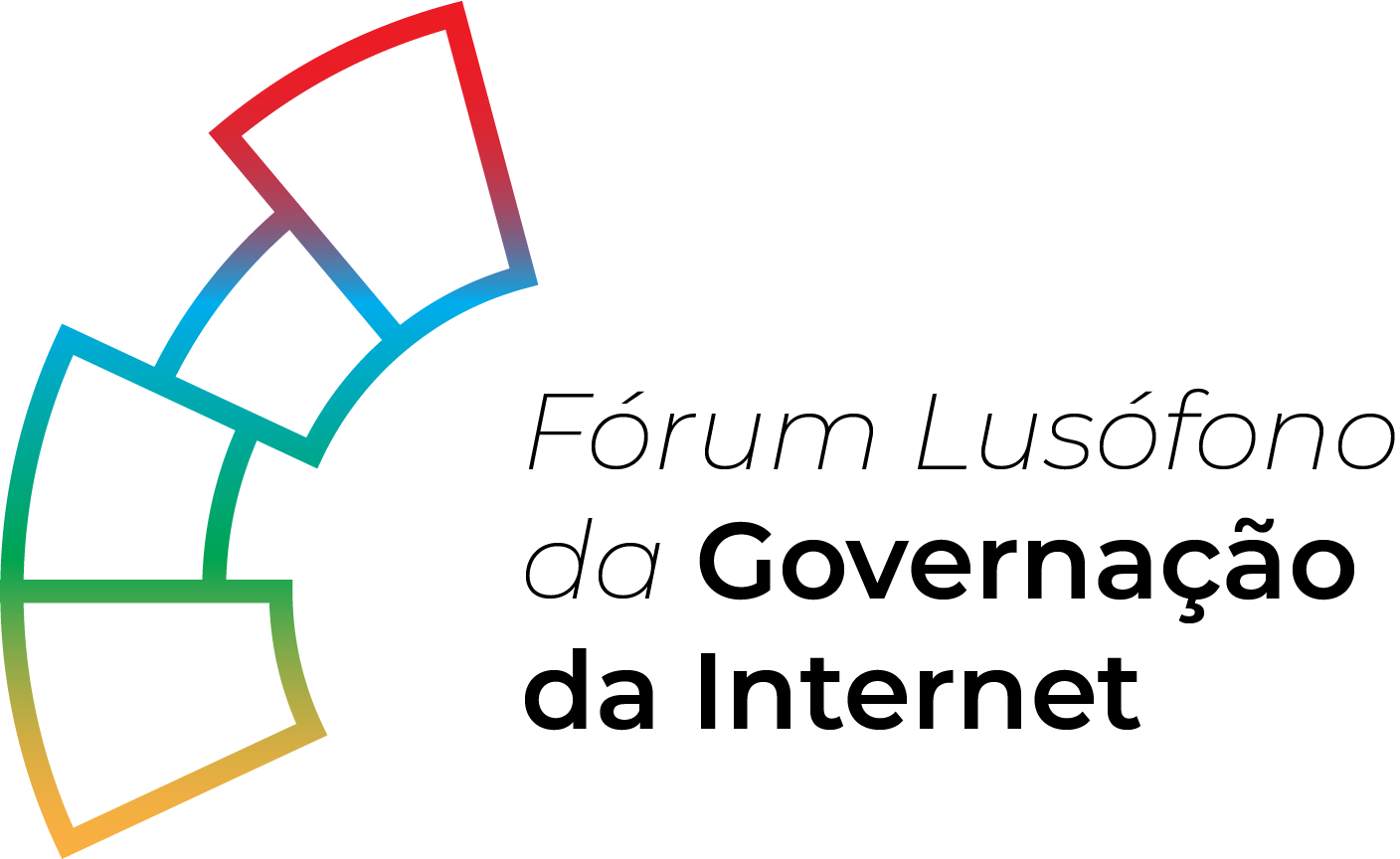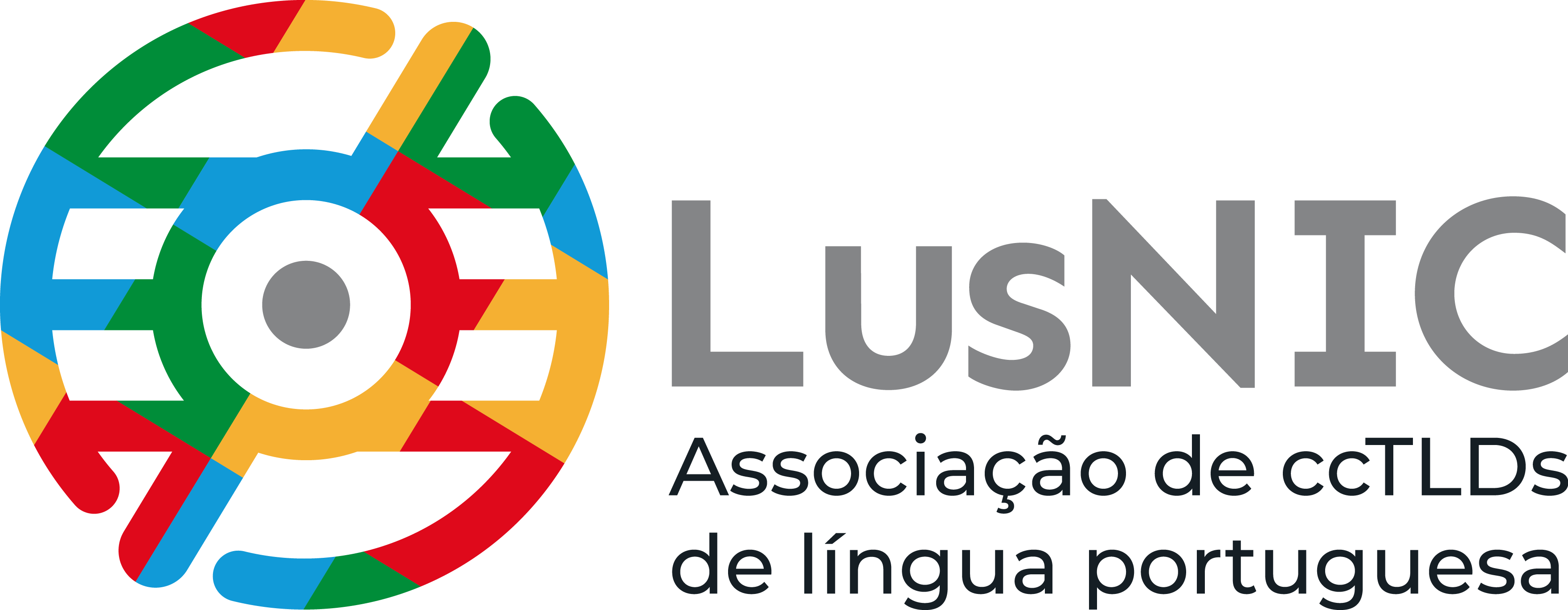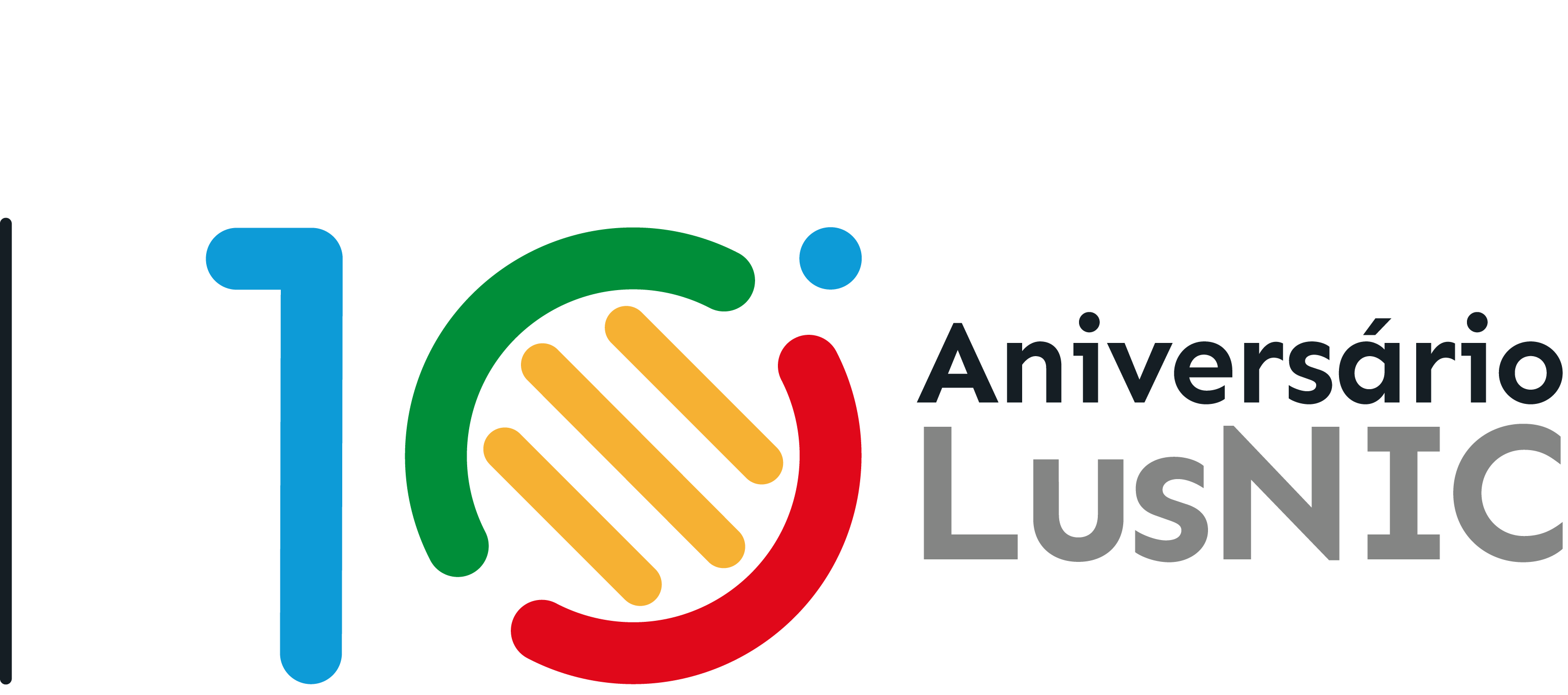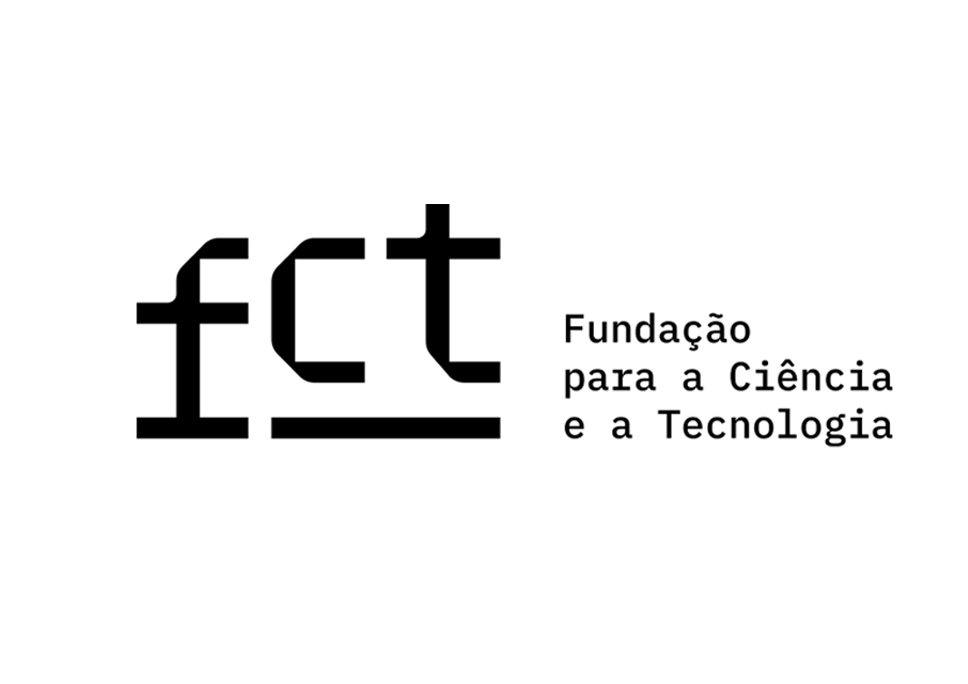Report available soon
3º Fórum Lusófono da Governação da Internet
On September 22nd and 23rd, the 3rd Internet Governance Forum of the Lusophone Community took place at the Joaquim Chissano International Conference Center in Maputo, Mozambique. The forum discussed and debated the multiple interactions of the Portuguese language in the developments, uses, and governance of the Internet. This year, it dedicated considerable time to reflecting on the impacts and challenges for linguistic and the cultural diversity of lusophony.
Maputo's Letter
Read the document approved by participants of the 3rd Lusophone Internet Governance Forum, outlining the principles for continuing these annual meetings. The next Forum, in 2026, will be held in Angola.
PROGRAM
September 22
Block 1 – Access, Inclusion and Diversity in Digital Lusophony
- Alexander Gentil – AGER, São Tomé e Príncipe
- André Pedro – INFOSI, Angol
- Leonilde Santos – ARME, Cabo Verde
- Marta Moreira Dias – LusNIC/.PT, Portugal
- Rafael Evangelista – CGI.br/Unicamp, Brasil
- Lourino Chemane – INTIC, IP, Moçambique
- Opening Remarks by Exma. Senhora Nilza Miquidade – MCTD, Moçambique
Digital Inclusion in Portuguese-Speaking Countries: Strategies to Reduce Digital Exclusion and Promote Universal Internet Access
This panel will address national and regional initiatives aimed at combating digital exclusion, focusing on connectivity in remote areas, digital empowerment of the population, and the development of accessible and sustainable infrastructure.
_______
Moderation: Luisa Ribeiro Lopes – .PT, Portugal
Speakers:
- Caíque Azael – Wiki Favelas, Brasil
- Helena Fernandes – INCM, Moçambique
- Leonilde Santos – ARME, Cabo Verde
- Manuella Maia Ribeiro – CETIC.br, Brasil
- Sandra Martins – .PT, Portugal
Linguistic and Cultural Diversity on the Internet: Challenges and Opportunities for the Portuguese Language in the Digital Environment
The role of the Portuguese language in the global digital space, the obstacles to its integration into emerging technologies, and the opportunities for expansion through the creation of content, digital tools, and innovative language policies will be discussed.
_______
Moderation: Rafael Evangelista – CGI.br/Unicamp, Brasil
Speakers:
- Gildo Macie – ECA, Moçambique
- Gilvan Muller Oliveira – Cátedra UNESCO/UFSC, Brasil
- Zenaida Évora Tavares – Universidade de Santiago, Cabo Verde
Block 2 - Artificial Intelligence and Sustainable Development in Lusophony
Artificial Intelligence as a Tool for Achieving Sustainable Development in Lusophony
This panel will explore AI use cases applied to priority sectors such as education, healthcare, agriculture, and public administration, highlighting the social and economic benefits of emerging technologies.
_______
Moderation: Bianca Kremer – CGI.br, Brasil
Speakers:
- Diogo Cortiz – NIC.br, Brasil
- João Vembane – UNESCO Moçambique, Nações Unidas
- Luís Neves – CIUEM, Moçambique
- Marcelo Fornazin – CGI.br, Brasil
- Sandra Fazenda Almeida – APDC, Portugal
- Vitor Guerra – AMPETIC, Moçambique
Establishing Lusophone Artificial Intelligence Governance: Challenges and Opportunities
The creation of an ethical, participatory and multilateral governance model for AI in the Portuguese-speaking world will be discussed, based on international standards, respect for human rights and cooperation between member countries.
_______
Moderation: Silaide Mutemba – MISA Moçambique
Speakers:
- Cleonice Moreira – UNICV, Cabo Verde
- Constantino Sotomane – INTIC, IP, Moçambique
- Guilherme Canela – UNESCO
- Luís Alexandre Reali Costa – OBIA, Brasil
- Sandra Maximiano – ANACOM, Portugal
September 23
Block 3 – Secure and Trusted Digital Infrastructures
Cybersecurity, Data Protection, and Cybercrime: Good Practices and Cooperation among Portuguese-Speaking Countries
This panel will highlight public policies, legal and regulatory frameworks, and international cooperation mechanisms focused on Cybersecurity, Privacy and Data Protection, and the prevention and combat of cybercrimes, with an emphasis on institutional capacity building and trust-building among States.
_______
Moderation: Marta Moreira Dias, .PT/LusNIC, Portugal
Speakers:
- André Pedro – INFOSI, Angola
- João Tomar– ARME, Cabo Verde
- Lino Santos – CNCS, Portugal
- Lourino Chemane – INTIC, IP, Moçambique
- Maria Cândida Oliveira –CNPD, Portugal
- Rodolfo Avelino – CGI.br, Brasil
Digital Identity and Interoperability as Catalysts for Digital Transformation: Sharing Good Practices and Cooperation Possibilities
The role of Digital Identity as a facilitator of access to digital public and private services will be discussed, as well as the technical challenges and the legal and regulatory framework to ensure Interoperability between National Information Systems, promoting synergies in the Lusophone space in Digital Transformation initiatives, in particular those linked to improving effectiveness and efficiency in the provision of digital services.
_______
Moderation: Manuel Costa Cabral – ANACOM, Portugal
Speakers:
- Delfina Soares – UNU-EGOV’s, Portugal
- Laisse Mucavele – INTIC, IP, Moçambique
- Luanna Roncaratti – Secretaria Adjunta de Governo Digital, Brasil
- Manuel António dos Santos – CEDSIF, Moçambique
Block 4 – Digital Economy, Innovation and Collaborative Governance
Digital Economy and Innovation: Driving Economic Development through Digital Technologies
This panel will present national and regional policies to foster digital entrepreneurship, the creation of startups, the digitalization of micro, small, and medium-sized enterprises (MSMEs), and the modernization of economies through technological innovation. The role of ccTLDs in developing national initiatives to support the entrepreneurial ecosystem will be particularly highlighted, empowering them and providing them with tools to access digital technologies and their potential. The panel will also assess the potential impact of global geopolitical developments on this ecosystem and the measures to be adopted to mitigate them, if necessary.
_______
Moderation: Andreia de Brito, .PT, Portugal
António Branco – Universidade de Lisboa, Portugal
Speakers:
- Adérito Pilica – Banco de Moçambique
- Alexandre Nilo Fonseca – ACEPI, Portugal
- Fernanda K Martins – Fundação Multitudes, Brasil
- João Pita Costa – UNESCO, IRCAI
- José Casinha – .PT, Portugal
- Lucilene Gomes – Universidade de Santiago, Cabo Verde
Multistakeholder Participation in Internet Governance: Strengthening Collaboration among Governments, Civil Society, the Technical Community, Academia, and the Private Sector
The importance of inclusive Internet governance models will be discussed, with the participation of multiple stakeholders, particularly those from the private and public sectors, academia, civil society, and the technical community. The panel will also focus on the African continent and the important role of young people. The panel will aim to formulate sustainable digital policies that address the concerns and interests of all segments of society, particularly young people and women, and are adapted to the realities of each Portuguese-speaking country. This panel will also address the potential synergies and impacts of ongoing processes such as the Pacto do Futuro, NET-mundial+10, and WSIS+20, in achieving the objectives of the Lusophone Internet Governance Forum.
_______
Moderation: Bia Barbosa – CGI.br, Brasil
Speakers:
- Ana Cristina Neves – FCT/FCCN, Portugal
- Cláudia Mendes Silva – Women in Tech/Siemens, Portugal
- Eugénio Macumbe – INTIC, IP, Moçambique
- Gisela Inácio – MINTTICS, Angola
- Renata Mielli – CGI.br/MCTI, Brasil
- Suzete Centeio Pereira – ARME, Cabo Verde
- Alexander Gentil – AGER, São Tomé e Príncipe
- André Pedro – INFOSI, Angola
- João Tomar – ARME, Cabo Verde
- Luisa Ribeiro Lopes – .PT, Portugal
- Rafael Evangelista – CGI.br/Unicamp, Brasil
- Closing Remarks by Exmo. Senhor Lourino Chemane – INTIC, IP, Moçambique
- A moment to read Maputo's Letter
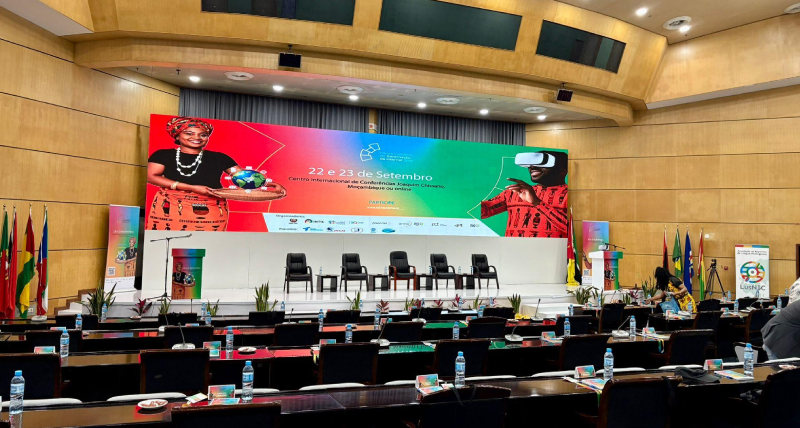
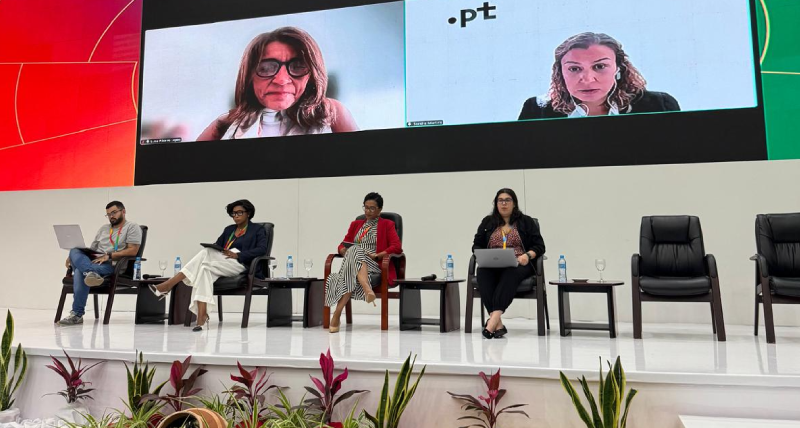
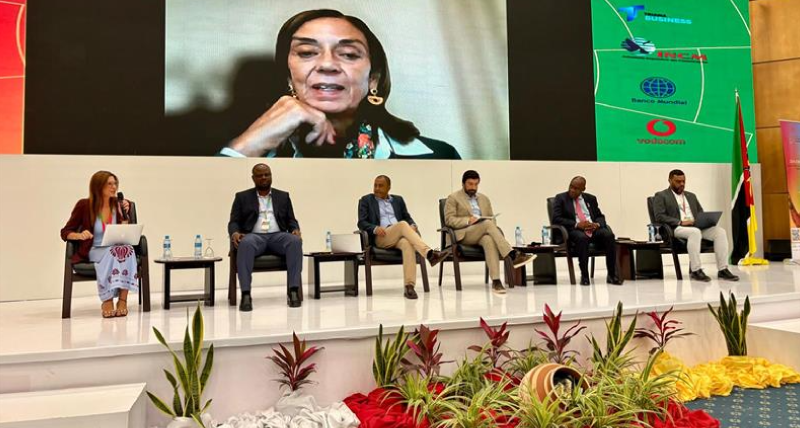
Editions
September 22
Bloco 1- Acesso, Inclusão e Diversidade na Lusofonia Digital
09h00 – 09h45
_______
- Alexander Gentil – AGER, São Tomé e Príncipe
- André Pedro – INFOSI, Angol
- Leonilde Santos – ARME, Cabo Verde
- Marta Moreira Dias – LusNIC/.PT, Portugal
- Rafael Evangelista – CGI.br/Unicamp, Brasil
- Lourino Chemane – INTIC, IP, Moçambique
- Opening Remarks by Exma. Senhora Nilza Miquidade – MCTD, Moçambique
11h00 – 12h30
Digital Inclusion in Portuguese-Speaking Countries: Strategies to Reduce Digital Exclusion and Promote Universal Internet Access
This panel will address national and regional initiatives aimed at combating digital exclusion, focusing on connectivity in remote areas, digital empowerment of the population, and the development of accessible and sustainable infrastructure.
_______
Moderation: Luisa Ribeiro Lopes – .PT, Portugal
Speakers:
- Caíque Azael – Wiki Favelas, Brasil
- Helena Fernandes – INCM, Moçambique
- Leonilde Santos – ARME, Cabo Verde
- Manuella Maia Ribeiro – CETIC.br, Brasil
- Sandra Martins – .PT, Portugal
13h30 – 14h20
Linguistic and Cultural Diversity on the Internet: Challenges and Opportunities for the Portuguese Language in the Digital Environment
The role of the Portuguese language in the global digital space, the obstacles to its integration into emerging technologies, and the opportunities for expansion through the creation of content, digital tools, and innovative language policies will be discussed.
_______
Moderation: Rafael Evangelista – CGI.br/Unicamp, Brasil
Speakers:
- Gildo Macie – ECA, Moçambique
- Gilvan Muller Oliveira – Cátedra UNESCO/UFSC, Brasil
- Zenaida Évora Tavares – Universidade de Santiago, Cabo Verde
_
Block 2 - Artificial Intelligence and Sustainable Development in Lusophony
14h40 – 16h00
Artificial Intelligence as a Tool for Achieving Sustainable Development in Lusophony
This panel will explore AI use cases applied to priority sectors such as education, healthcare, agriculture, and public administration, highlighting the social and economic benefits of emerging technologies.
_______
Moderation: Bianca Kremer – CGI.br, Brasil
Speakers:
- Diogo Cortiz – NIC.br, Brasil
- João Vembane – UNESCO Moçambique, Nações Unidas
- Luís Neves – CIUEM, Moçambique
- Marcelo Fornazin – CGI.br, Brasil
- Sandra Fazenda Almeida – APDC, Portugal
- Vitor Guerra – AMPETIC, Moçambique
16h30 – 18h00
Establishing Lusophone Artificial Intelligence Governance: Challenges and Opportunities
The creation of an ethical, participatory and multilateral governance model for AI in the Portuguese-speaking world will be discussed, based on international standards, respect for human rights and cooperation between member countries.
_______
Moderation: Silaide Mutemba – MISA Moçambique
Speakers:
- Cleonice Moreira – UNICV, Cabo Verde
- Constantino Sotomane – INTIC, IP, Moçambique
- Guilherme Canela – UNESCO
- Luís Alexandre Reali Costa – OBIA, Brasil
- Sandra Maximiano – ANACOM, Portugal
September 23
Bloco 3 - Infraestruturas Digitais Seguras e Confiáveis
09h00 – 10h30
Cybersecurity, Data Protection, and Cybercrime: Good Practices and Cooperation among Portuguese-Speaking Countries
This panel will highlight public policies, legal and regulatory frameworks, and international cooperation mechanisms focused on Cybersecurity, Privacy and Data Protection, and the prevention and combat of cybercrimes, with an emphasis on institutional capacity building and trust-building among States.
_______
Moderation: Marta Moreira Dias, .PT/LusNIC, Portugal
Speakers:
- André Pedro – INFOSI, Angola
- João Tomar– ARME, Cabo Verde
- Lino Santos – CNCS, Portugal
- Lourino Chemane – INTIC, IP, Moçambique
- Maria Cândida Oliveira –CNPD, Portugal
- Rodolfo Avelino – CGI.br, Brasil
11h10 – 12h30
Digital Identity and Interoperability as Catalysts for Digital Transformation: Sharing Good Practices and Cooperation Possibilities
The role of Digital Identity as a facilitator of access to digital public and private services will be discussed, as well as the technical challenges and the legal and regulatory framework to ensure Interoperability between National Information Systems, promoting synergies in the Lusophone space in Digital Transformation initiatives, in particular those linked to improving effectiveness and efficiency in the provision of digital services.
_______
Moderation: Manuel Costa Cabral – ANACOM, Portugal
Speakers:
- Delfina Soares – UNU-EGOV’s, Portugal
- Laisse Mucavele – INTIC, IP, Moçambique
- Luanna Roncaratti – Secretaria Adjunta de Governo Digital, Brasil
- Manuel António dos Santos – CEDSIF, Moçambique
_
Bloco 4 - Economia Digital, Inovação e Governação Colaborativa
13h30 – 15h00
Digital Economy and Innovation: Driving Economic Development through Digital Technologies
This panel will present national and regional policies to foster digital entrepreneurship, the creation of startups, the digitalization of micro, small, and medium-sized enterprises (MSMEs), and the modernization of economies through technological innovation. The role of ccTLDs in developing national initiatives to support the entrepreneurial ecosystem will be particularly highlighted, empowering them and providing them with tools to access digital technologies and their potential. The panel will also assess the potential impact of global geopolitical developments on this ecosystem and the measures to be adopted to mitigate them, if necessary.
_______
Moderation: Andreia de Brito, .PT, Portugal
António Branco – Universidade de Lisboa, Portugal
Speakers:
- Adérito Pilica – Banco de Moçambique
- Alexandre Nilo Fonseca – ACEPI, Portugal
- Fernanda K Martins – Fundação Multitudes, Brasil
- João Pita Costa – UNESCO, IRCAI
- José Casinha – .PT, Portugal
- Lucilene Gomes – Universidade de Santiago, Cabo Verde
15h10 – 16h30
Multistakeholder Participation in Internet Governance: Strengthening Collaboration among Governments, Civil Society, the Technical Community, Academia, and the Private Sector
The importance of inclusive Internet governance models will be discussed, with the participation of multiple stakeholders, particularly those from the private and public sectors, academia, civil society, and the technical community. The panel will also focus on the African continent and the important role of young people. The panel will aim to formulate sustainable digital policies that address the concerns and interests of all segments of society, particularly young people and women, and are adapted to the realities of each Portuguese-speaking country. This panel will also address the potential synergies and impacts of ongoing processes such as the Pacto do Futuro, NET-mundial+10, and WSIS+20, in achieving the objectives of the Lusophone Internet Governance Forum.
_______
Moderation: Bia Barbosa – CGI.br, Brasil
Speakers:
- Ana Cristina Neves – FCT/FCCN, Portugal
- Cláudia Mendes Silva – Women in Tech/Siemens, Portugal
- Eugénio Macumbe – INTIC, IP, Moçambique
- Gisela Inácio – MINTTICS, Angola
- Renata Mielli – CGI.br/MCTI, Brasil
- Suzete Centeio Pereira – ARME, Cabo Verde
16h30 – 17h10
_______
- Alexander Gentil – AGER, São Tomé e Príncipe
- André Pedro – INFOSI, Angola
- João Tomar – ARME, Cabo Verde
- Luisa Ribeiro Lopes – .PT, Portugal
- Rafael Evangelista – CGI.br/Unicamp, Brasil
- Closing Remarks by Exmo. Senhor Lourino Chemane – INTIC, IP, Moçambique
17h10 – 17h20, A moment to read Maputo's Letter
